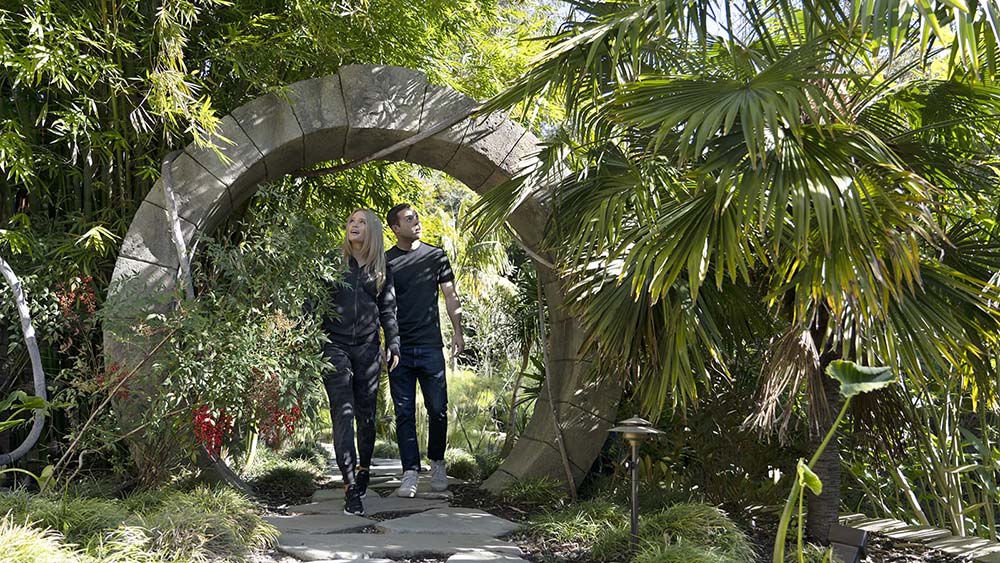
Audio company Spatial creates immersive, interactive soundscapes for outdoor and indoor spaces. The technology can be used to enhance experiences at both in-person and digital events. (Courtesy of Spatial)
Throughout the pandemic, many of our lifestyles, priorities, and ways of working have dramatically changed. In its report “The Future 100: 2022,” creative agency, consultancy, and technology company Wunderman Thompson has identified 100 trends across industries — from culture to health to travel and hospitality — that will shape the way we live and work this year and beyond. Convene’s editors each chose three trends from Wunderman Thompson’s report and connected them to meetings and events. Deputy Editor Barbara Palmer looks into 3D audio, microadventures, and the reinvention of department stores.
3D Audio
It’s been almost a decade since the Harpa Concert Hall and Conference Centre opened in Reykjavik, Iceland. The center is certifiably stunning — in 2013, it won the Mies van der Rohe Award — European Union Prize for Contemporary Architecture. But this hall stands out in my mind for the dramatic way that its opening was announced on the center’s website. As I recall, visitors to the website were greeted with a very short audio recording of the hum of voices in conversation, like one might hear before a performance, which were hushed by the “tap, tap, tap” of a conductor’s baton on the podium as photos of the new hall and center were revealed. It so perfectly — and unexpectedly — captured the feeling of anticipation right before a concert begins, that I never forgot it.
It stayed with me because sound, like scent, carries emotional resonance. And as companies like Spatial and Apple create technology and technical services that support immersive, interactive soundscapes, that’s good news for both in-person and digital events. It can’t help but expand the potential for introducing ways to forge emotional connections with sounds that go far beyond the well-worn trick of cranking the music up to create a sense of excitement. For example, maybe a fireside chat session could be augmented with the subtle crack and pop of a wood fire in the background. Or the sound of footsteps as a speaker heads toward the stage could be shared with those who are joining online. Movie makers have long known that sound is a powerful part of story — technology now promises to give event producers new tools with which to add emotional depth to their productions.
Microadventures
Experience-hungry travelers are taking smaller, shorter excursions into nature, according to Wunderman Thompson’s report, and studies indicate “that these microadventures are as impactful on mental and emotional health as traditional getaways.”
The idea of microadventures is one familiar to event organizers — events have long given conference attendees options to sign up to sample what meeting destinations have to offer outside of the event venue, often before or after the event itself. But conference organizers have an opportunity to reap the positive emotional benefits of getting out into nature by integrating the outdoors into their conference agendas.
The World Congress for Psychotherapy was on the right track when it offered “Freudian Walks” during its 2018 meeting. Held at Sigmund Freud University in Vienna, the conference organized walking sessions — talks about specific themes while walking in the park around the university — just like the strolls that the university’s namesake and father of psychoanalysis used to take with his patients.
The pandemic caused planners to reconsider outdoor spaces — courtyards, patios, rooftops, terraces, and even beaches — as settings not just for purely social events, but for education sessions. Attendees aren’t likely to want to trade in fresh air, sunshine, and natural settings for long days spent entirely indoors.
Department Stores Reformatted
Meetings and shopping have something in common — online versions of both flourished during the pandemic out of necessity. And there are lessons for the meetings industry in how department stores are shifting their strategy to adapt to the change. To lure shoppers away from the convenience of online, retailers are replacing anonymous, big-box experiences with alternatives that are more authentic and place-specific. According to the Wunderman Thompson report, “the latest department stores are more town squares than retailers, reflecting a shift in the retail landscape from big-box luxury to community microcosm.”
“I don’t ever see a big department store chain emerging again,” Tony Brown, CEO of Beales, a U.K.-based department store chain, told The Guardian, as reported by Wunderman Thompson. “The model will change dramatically over the next couple of years. People want something more localized.” The “reformatting” of event spaces is already underway in a new generation of convention centers, where trends like including public spaces that invite the local community and offering destination-authentic experiences are going strong.
Barbara Palmer is deputy editor of Convene.
